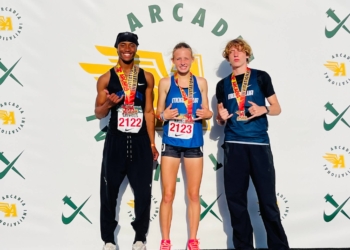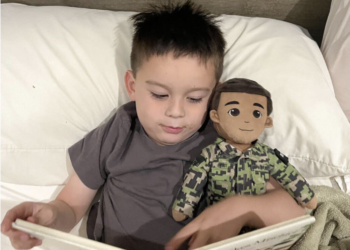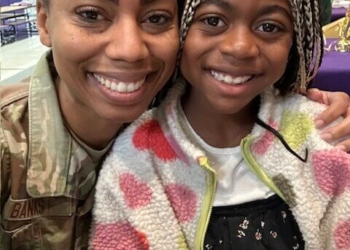The cost of youth sports has been accelerating for decades. And for those households just trying to keep pace with the demands of inflation, dropping more than $1,000 per year on extracurricular activities may not be in the family budget.
In particular, military families.
“Your average military sergeant that’s been serving for six to eight years and likely deployed at least once makes about $34,000 a year,” said Shane Hudella, the founder of the Minnesota-based nonprofit United Heroes League, which helps facilitate sports participation and experiences for military-family youth.
“So, it’s tough to put kids through incredibly expensive youth sports when you’re on that kind of income,” he said.
It isn’t unusual for families to spend well above $1,000 in a given year. According to the Aspen Institute 2021 State of Play report, parents with a child in ice hockey face an average cost of more than $2,500 per year. The Aspen Institute is a leadership development and problem-solving nonprofit based in D.C.
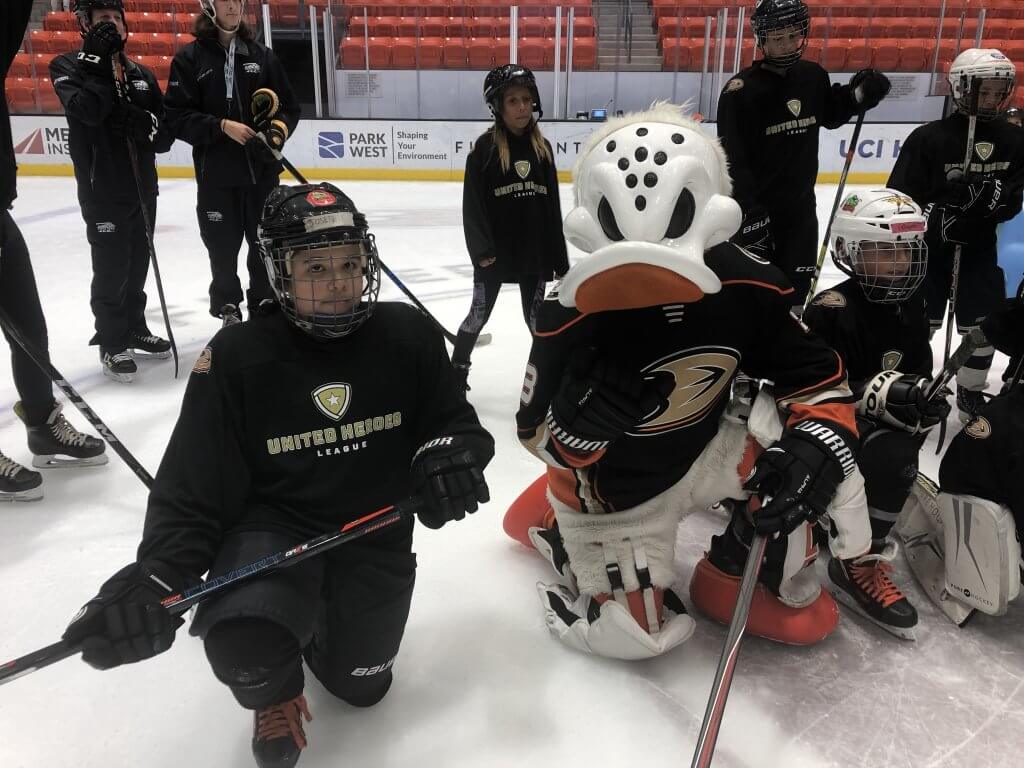
The report states gymnastics costs $1,580 annually, lacrosse $1,289, and at the lower end of the spectrum are basketball, $427, and track and field, $191. It further notes some parents incurred expenses exceeding $12,000 during a 12-month period.
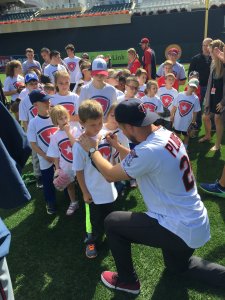
Col. Richard Erredge, the 960th Cyberspace Wing commander at the Joint Base San Antonio-Chapman Training Annex in Texas, has been part of UHL for several years.
“Military families just can’t afford that, especially the younger airmen,” he said.
UHL has been instrumental in affording youth the opportunity to play sports.
“Our mission is to help military kids and families play the game they love,” Hudella said. “Most of that focus is on military kids.”
He said these kids are thrust into a kind of predicament. The field or rink is a crucial outlet for military kids suffering from emotional and mental stress.
“And things like deployments, whether it’s to the Middle East, or riot response, or COVID response, all of those things kind of take a toll on military kids who deal with mom or dad, or sometimes both, being gone for the holidays, or birthdays or that big game,” Hudella said. “So that creates a lot of stress and anxiety on military kids.”
United Heroes League gets in the game
The birth of UHL occurred while Hudella was on Army active duty in the Twin Cities. He encountered some pro athletes interested in giving back to military families through hockey.
“There wasn’t really anything out there, so I just kind of decided overnight to start a nonprofit,” he said.
Erredge lived in the same city as Hudella and was unaware of UHL (called Defending The Blue Line at the time). He found out about the nonprofit through his brother, ultimately connected with Hudella, offered his help and has been involved ever since.
“We always knew what the need was,” Erredge said. “We knew we wanted our reach much broader … the only thing holding us back was money really.”
Erredge said the veteran nonprofit space is cluttered.
“Anywhere from a kid collecting a few bucks all the way to Wounded Warrior. And everything in between,” he said.
UHL founders wanted to stand out in a crowded room. Erredge says no organization was reaching out to the military youth demographic.
“So we said, ‘We gotta keep going. There’s no competitors in this space. There’s always going to be a need,’” he said.
In 2012, UHL received the Joining Forces Community Challenge recognition from the Obama White House as the best new military nonprofit in the country. The award helped springboard their program into a national one.
“Here we are, 13 years and $20 million in giving later,” Hudella said.
The primary mission of the UHL is five-fold. First, outfitting the military kids head-to-toe, Hudella said. Next, hosting sports camps exclusively for military youth throughout the country, many in conjunction with UHL pro-athlete ambassadors. He said former Minnesota Vikings tight end — the current New York Giants tight end — Kyle Rudolph runs a football camp every summer and a couple of hundred UHL kids have participated over the years.
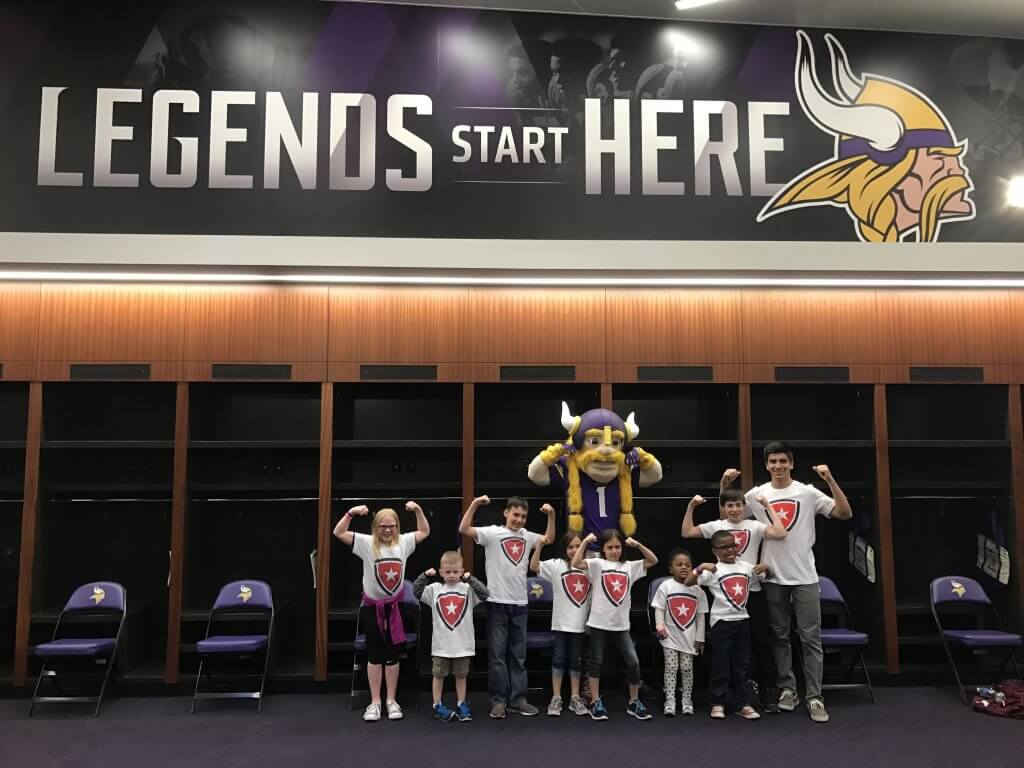
UHL also furnishes cash grants up to $500 per child to help offset the costs of sports leagues, camps and equipment. They provide memories and family bonding activities too.
“We do ticketing for military families … we do that all over the country. It’s a great opportunity for families to reconnect after a deployment on a night out,” Hudella said. “Or go out and enjoy an evening together before a deployment.”
Lastly, UHL provides special experiences for military kids, such as face-to-face time with professional athletes. The NBA’s Minnesota Timberwolves took 10-20 program military kids in a limo-bus to Target during several Christmas holiday seasons pre-COVID.
“The Timberwolves players would come out and take them on a shopping spree for the holidays,” Hudella said.
UHL serves all branches of the military, veterans, active duty and the reserve components.
“If you served honorably and wore a uniform, you’re probably eligible for our benefits,” Hudella said. “And we are the only nonprofit in America that does this mission, which makes us very unique.”
Find out more about United Heroes League at https://unitedheroesleague.org/.
Read comments
















